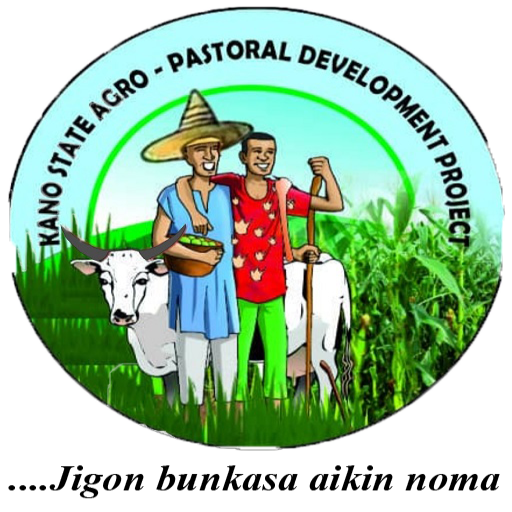Like in many African societies, women in Kano state, Nigeria, contribute significantly to food production and processing, but men take more of the farm decisions and control the productive resources. Yet, increased participation of women is required to boost agricultural productivity and attain food security, besides alleviating poverty for a state whose population is conservatively put at about 18 million people. It is believed that about 70 percent of this population is below the poverty line and majority of them are women.
To this end, under KSADP/Sasakawa Africa Association Crop intervention programme, thousands of women and youth are supported to access technical expertise and input grants, to stimulate optimal involvement in agricultural production and processing thus, providing income and rural employment.
This is premised on the commitment of the Islamic Development Bank and the Lives and Livelihood Funds, the financiers of KSADP, to lift millions of people out of poverty and improve livelihoods generally, through job creation and income generation initiatives.
So far, about 114, 719 farmers, including a good number of women farmers have started celebrating their gains, according to Safiya Inuwa Danborno, 45, a mother of seven children from Gafan Women Group Cooperative Society, Bunkure local government area. She has the responsibility of meeting the domestic needs of the family since her husband supports an extended family comprising several nephews and grand children.
“Our association has 50 members and we have been farming as an organized group for 17 years. However, access to land and inputs has always been our bottleneck to agricultural production”.
Through the KSADP/Sasakawa project the group has enlisted them to be part of the Smallholder commercial farmers who will produce sorghum and maize in a contiguous 50-hectare land allocated to them by the Kano state Ministry of Agriculture and Natural Resources in the 2021 wet season production calendar.
Apart from the training they got, each of the beneficiaries received 500kg of improved sorghum seed, 50 bags of NPK and 50 bags of Urea fertilizer respectively.

Safiya Inuwa Danbarno with some members of her group in their farm
“We are happy beneficiaries of KSADP/Sasakawa input grant support. Ever since we ventured into farming, access to capital for us to procure inputs has been very difficult because we are weak. Our group applied and secured 50 hectares of land from Kano state government which we intend to produce sorghum and maize but we were constrained due to lack of capital”.
“Glory be to Allah, when we heard of KSADP, the Islamic Bank financed project providing inputs support through Sasakawa, so we approached them. Their workers quickly came and confirmed the location of our farms and provided us with inputs grant equivalent to 30 percent of the required inputs for 50 hectares”.
“This unlocked opportunity for us to grab an off-taker who is funding the 70 percent balance of our production cost. You can see how big this farm is. We are happy to inform you, that this kind of contiguous production by women in Gafan area is unprecedented. Go round and ask people – we are a point of reference in Bunkure as a result of the KSADP grant”.
“The intervention has brought happiness to our lives. When we harvest the produce, we will take some percentage of the profit to solve family issues and re-invest the remaining to scale up production in the next cropping season”.

Gafan women farmers in their sorghum farm
Commenting on this development, the KSADP/SAA Project Coordinator, Abdurrashid Kofar Mata said: “We have commenced the training of women in best agronomic practices and basic farm technologies across several locations in part of the state. We also provided them with seeds and other inputs. We trained them on nutrition sensitive agriculture all with the funding received from KSADP, whose funds come from the Islamic Development Bank and the LLF”.
He stated that 45 women groups in the state, comprising not more 25 women each, amounting to 1,125 beneficiaries have been trained on improved rice parboiling techniques and empowered them with improved parboiling kits. Karefa Women Rice Processors in Tudun Wada local government area is among the quick adapters to the training.
40 year old, Ummi Sh’aibu a housewife with eight children is a member of Karefa Women Rice Processors said hitherto, they have been into processing for over 20 years, with little to show for it. They were selected for the agricultural training based on criteria using a “farmers’ assessment checklist’’ as a tool to help identify women groups that actually need the intervention.

“We are used to processing using traditional pot but it doesn’t make our work easy. Secondly, our milled rice is always looking dark and having stones in it. So it is merely patronized. But with this training we received few months ago and the new sorting and parboiling equipment supplied, it really helped us to improve on our business. We are so amazed. We thought any rice that is processed locally cannot be eye friendly and pot friendly too”.
“We were trained on improved parboiling, milling and how to package the milled rice. Let me tell you that in the past 5 weeks, I have been able to process 30 bags of paddy and I have made a profit of N75, 000 from sales of my packaged milled rice, which I hardly gain before in 3 months because the rice is not value added”.
“By all means, we are richer now and I am planning to rent a shop to display my goods. We have gotten new experience and this has really increased my confidence in this business. I don’t know how to thank the IsDB for the KSADP/SAA project, which has come to our locality with a life changing opportunit
y”.
Ummi Shu’aibu with her friends displaying their association’s packaged rice
Ameen K. Yassar
Communication Specialist, KSADP

